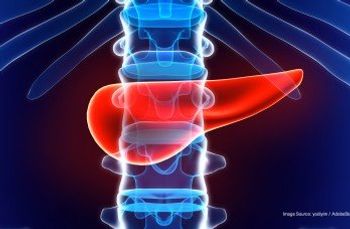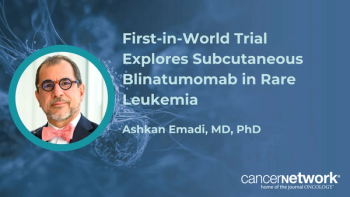
Artificial Intelligence Tool May Improve Oncology Multi-Trial Matching
An AI-based system may reduce the time needed to match patients with cancer to suitable clinical trials.
The use of an artificial intelligence (AI)–based model may “significantly increase” the number of patients with cancer who can be matched for enrollment on appropriate clinical trials, according to Arturo Loaiza-Bonilla, MD, MSEd, FACP.
In a conversation with CancerNetwork® during the
Loaiza-Bonilla discussed these findings in the context of an abstract submitted for publication only in the Journal of Clinical Oncology.1 Publication-only abstracts designate those that are not selected by the ASCO Scientific Program Committee for presentation at the Annual Meeting but are eligible for inclusion electronically in a Journal of Clinical Oncology supplement, the 2024 ASCO Annual Meeting Proceedings.2
Transcript:
The background for this research stems from inefficiencies and limitations that we see every day. As the chair of research [at my institution], I see them in my daily practice of manual patient trial matching, which is extremely consuming timewise, and resource intensive. It can take up to 25 minutes per trial to assess [patient trial matching manually]. On top of that, when you compound it with a lack of biomarker testing, such as next-generation sequencing [NGS], that complicates the whole process in the ability for us to find appropriate results. To address these potential issues, this tool, Synergy AI from Massive Bio, was used to have an AI-enabled matching system that is designed to automate and expedite the processes using real-world data and integrate that next-generation sequencing results to the algorithm.
These tools are efficient in finding things that can be a structure, so the tool was highly effective. [The tools] significantly increased the number of potential matches and reduced the time required for matching. In this study, we showed that patients were matched to at least 1 trial and were matched to 1.82 times more trials using the AI-enabled system compared with human [matching]. On top of that, if we had an implementation of 100%, NGS testing, we could double the number of trial matches; that means that [NGS testing] is important as well to make sure patients get the right biomarker testing based on medical necessity. The most striking finding for us was the dramatic reduction in manual effort. The AI system did in 1 hour what it would have taken 19,500 hours [through manual efforts]. You can imagine [there is] a lot of work that can be saved so that we can focus on patients and making sure that we deliver excellent care.
Reference
Kurnaz S, Loaiza-Bonilla A, Castañeda DC, Huner O. Effect of a novel artificial intelligence (AI) –enabled multi-trial matching system on patient matching using real-world data. J Clin Oncol. 2024;42(suppl 16):e13501. doi:10.1200/JCO.2024.42.16_suppl.e13501
Newsletter
Stay up to date on recent advances in the multidisciplinary approach to cancer.












































